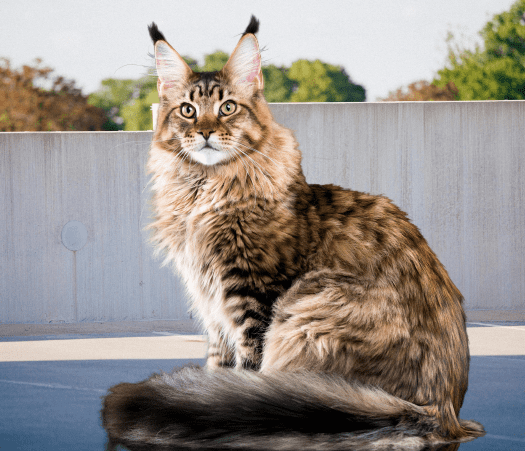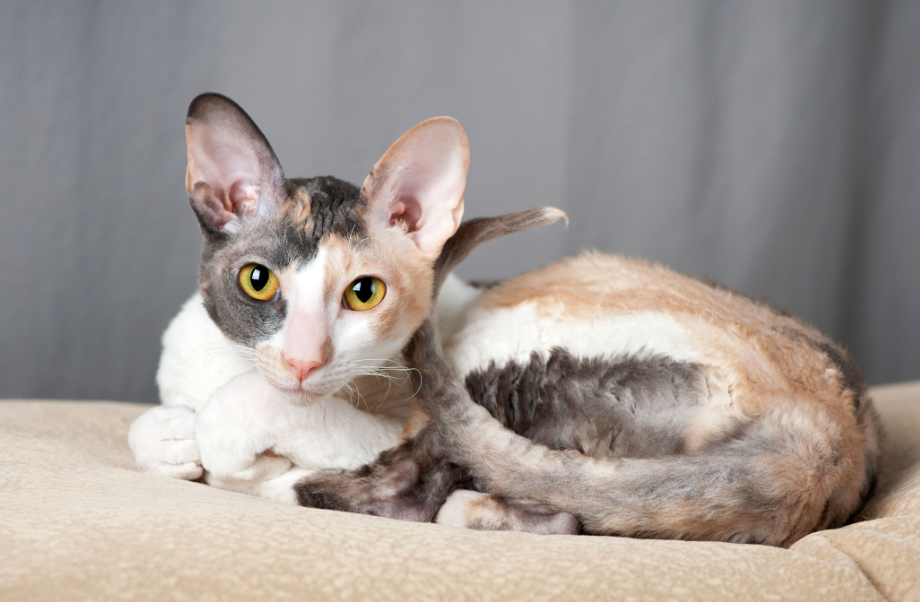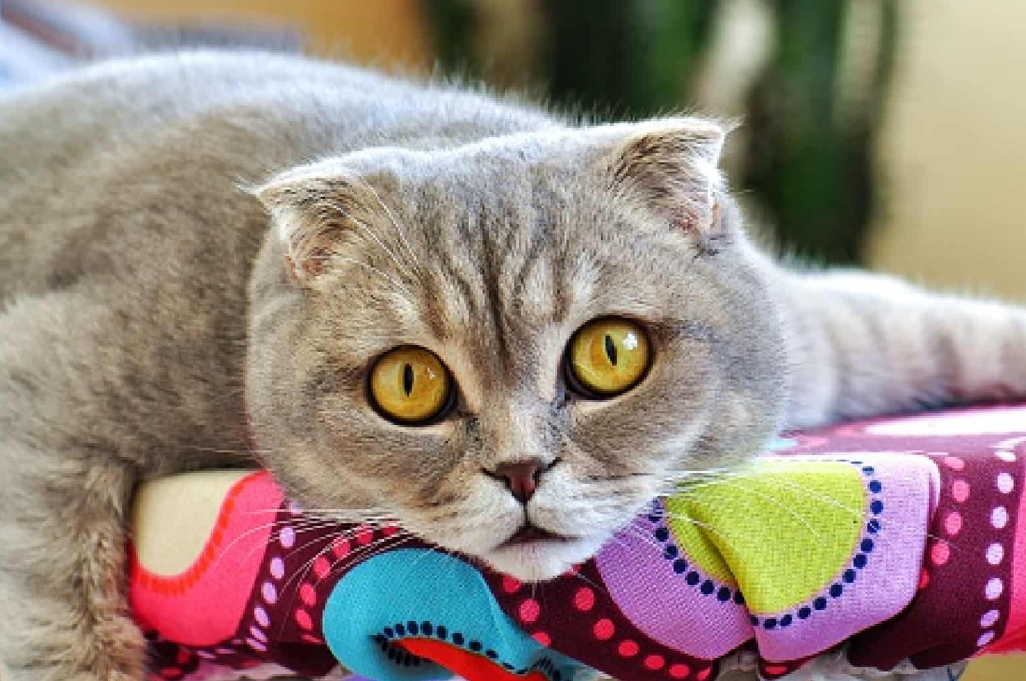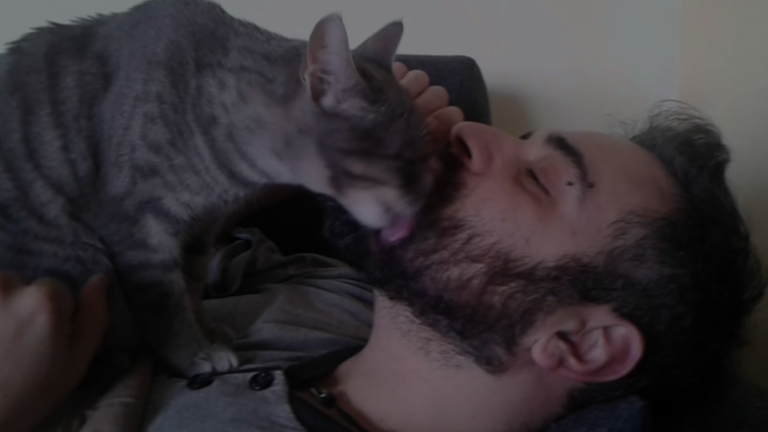Imagine a feline fashionista strutting down a catwalk: sleek and spotted like a cheetah, tall and graceful like a gazelle, yet playful and charming like a domestic kitty. That’s the allure of the Savannah cat, a hybrid breed born from the union of an African serval and a domestic feline. These exotic beauties are turning heads with their unique origins, striking appearance, and… wait, are Savannah cats hypoallergenic?
Before we delve into allergy myths, let’s appreciate the captivating essence of the Savannah. Their wild ancestry shines through in their long, lanky legs, high-set ears like radar dishes, and a captivating coat boasting bold brown spots – a living ode to the African savannah.
And just like their namesake, Savannahs hold court with a confident, adventurous spirit, captivating hearts with their playful antics, and loyal companionship. Their popularity is soaring, but whispers of “hypoallergenic wonder cat” abound.
Can this majestic mix truly offer allergy relief, or is it perfectly embellished with hype? Buckle up, cat enthusiasts, as we investigate the truth behind the fur-bulous Savannah cat and their allergy mystique!
Understanding Cat Allergies
When it comes to cat allergies, the blame game often falls on the fur, but the real culprits are far tinier and more insidious. Let’s meet the trio of troublemakers:
- Fel d 1 Protein: This microscopic protein, found in a cat’s saliva, dander (dead skin flakes), and even their tears, is the undisputed king of cat allergens. It triggers our immune system’s overreaction, leading to the runny noses and itchy eyes we all know too well.
- Dander: While not as potent as Fel d 1, these tiny skin flakes carry the protein like miniature allergen-filled snowdrifts. They shed constantly, floating through the air and clinging to furniture, making them a persistent nuisance for allergy sufferers.
- Saliva: Every lick, every playful nip, every “I love you” groom deposits a dose of Fel d 1. This is why even short-haired cats can trigger allergies, as the protein spreads easily through their fur during grooming.

Myth Busters
Many believe short-haired breeds or hairless cats are allergy-free options. While they may shed less, they still produce Fel d 1 in their saliva and dander, making them unsuitable for most allergy sufferers. Additionally, some myths claim male cats are less allergenic, but scientific evidence doesn’t support this.
Breed Variations
Interestingly, the amount of Fel d 1 can vary between breeds. Some breeds, like the Siberian Forest Cat, have a mutation that reduces the allergen, while others, like the Maine Coon, are known for producing higher levels. However, it’s important to remember that no cat breed is truly hypoallergenic. Even low-allergen breeds can trigger reactions in sensitive individuals.
Debunking the Hypoallergenic Myth for Savannah Cats
The allure of a majestic Savannah cat often comes paired with whispers of its “hypoallergenic” magic. But before you envision a sneeze-free life alongside these spotted beauties, let’s shatter the myth: no cat breed is truly hypoallergenic, not even Savannahs.
While their minimal shedding might tempt allergy sufferers, here’s the cold, hard truth: Savannahs, like all cats, produce the notorious Fel d 1 protein – the main culprit behind allergic reactions. This insidious protein lurks not just in their fur, but also in their saliva and dander, making it omnipresent and unavoidable.
So, even though Savannah’s sleek coat sheds less than a fluffy Maine Coon, every lick, nuzzle, and playful swipe deposits a fresh dose of allergen. Don’t fall for the shedding fallacy – it’s the internal production of Fel d 1 that matters most.
But here’s a twist: within the Savannah breed itself, there’s a genetic twist. The amount of Fel d 1 can vary depending on their generation and the domestic cat used in the breeding process. Savannahs born with a higher percentage of serval ancestry tend to produce more Fel d 1, while those with a dominant domestic feline influence might have lower levels.

Dr. Sarah Jones, a leading feline allergy specialist, points out: “While some individual Savannahs may trigger fewer allergies than others, it’s crucial to remember that any level of Fel d 1 can trigger a reaction in sensitive individuals.”
The American Cat Fanciers Association (CFA) echoes this sentiment, stating: “There is no scientific evidence to support the claim that any cat breed, including Savannahs, is completely hypoallergenic.”
Factors Influencing Allergic Reactions
The world of cat allergies is far from a one-size-fits-all scenario. Just like fingerprints, individual allergies vary in their severity and sensitivity to different triggers. Some may experience mild sniffles and itchy eyes, while others face debilitating symptoms like asthma attacks. Additionally, the type of allergen can play a role. Some individuals might be hypersensitive to Fel d 1 in saliva but less affected by dander.
Now, let’s revisit the enigmatic Savannah cat. While they’re not magically hypoallergenic, their unique characteristics might offer some potential benefits for allergy sufferers:
- Short, low-shedding coat: Compared to fluffy breeds, Savannahs shed significantly less, reducing the airborne dispersal of allergen-laden dander. This can be a bonus for those primarily sensitive to dander.
- Grooming habits: Savannahs are known for their fastidious grooming habits, which can help minimize the spread of saliva and dander on their fur. This proactive self-cleaning could potentially lessen allergen exposure.
It’s important to acknowledge the anecdotal evidence. Some allergy sufferers report experiencing fewer or milder symptoms with Savannahs compared to other breeds. While this doesn’t guarantee a sneeze-free life, it suggests that individual sensitivity and the specific allergen profile of the Savannah cat can play a role in individual responses.
Alternatives for Cat Allergy Sufferers
Living with cat allergies doesn’t have to mean saying goodbye to furry companionship. While Savannah cats, despite their charm, may not be the ideal solution, the feline world offers other stunning choices for allergy sufferers to cuddle and conquer. Let’s explore some allergy-friendly alternatives:

Truly Hypoallergenic Heroes
- Siberian Forest Cat: These gentle giants with luxurious coats boast a natural mutation that reduces Fel d 1 production, making them a top choice for allergy sufferers. Their fluffy exterior belies a surprisingly low-shedding nature, further minimizing allergen exposure.
- Cornish Rex: These playful elves of the cat world sport a unique, wavy coat or even lack fur entirely. Their minimal shedding combined with low Fel d 1 levels makes them hypoallergenic darlings of the feline kingdom.
- Oriental Shorthair: Graceful and intelligent, these sleek companions boast a short, dense coat that sheds minimally. Their low Fel d 1 production adds to their allergy-friendly appeal.
Living Harmony with Your Feline Friend
Even with a hypoallergenic breed, it’s crucial to manage your allergies for harmonious cohabitation. Here are some tips:

- Air Purifiers: Invest in HEPA air purifiers to capture airborne allergens in your cat’s favorite hangouts. Regular filter replacements are key.
- Cleaning Crusaders: Become a champion of cleanliness! Frequent vacuuming and mopping, especially in high-traffic areas, can significantly reduce dander build-up.
- Allergy Medication: Consult your doctor about allergy medication tailored to your specific needs. Antihistamines and nasal corticosteroids can provide relief and allow you to enjoy your perfect companion freely.
- Bedroom Banishment: Consider keeping your sleeping space cat-free. This minimizes nighttime exposure to allergens, ensuring uninterrupted slumber and fewer sniffles.
Remember, Responsibility Reigns
Welcoming a cat, be it hypoallergenic or not, is a lifelong commitment. Be prepared to prioritize both your furry friend’s needs and your allergy management for successful and joyful companionship.
Hybrid Cats: Cool Cats, Ethical Concerns?
Savannahs, Bengals, Chausies – these hybrid cats with wild-style looks are stealing hearts. But before you bring one home, consider if it’s ethical.
Potential Health Issues:
Mixing wild and domestic cats can lead to problems like:
- Bone trouble: Think of awkward growth and sore joints.
- Weaker immune system: More prone to sickness.
- Unpredictable behavior: Wild instincts might cause aggression or difficulty handling.
Ethical Worries:
- Putting cool looks above cat well-being? Are we breeding healthy animals or satisfying human desires?
- Are buyers informed about the risks? Breeders should be honest about potential health problems.
- Does it hurt wild cats? Resources could be used for protecting endangered species instead.
Making a Responsible Choice:
- Do your research: Understand the specific health risks for the breed you’re interested in.
- Choose wisely: Find ethical breeders who prioritize animal health and provide transparent information.
- Consider alternatives: Rescue cats have plenty of personality and need loving homes too!
Are Savannah Cats Hypoallergenic?
Savannah cats, while captivatingly spotted and gracefully tall, aren’t the hypoallergenic havens some believe. Despite low shedding, they produce the allergy-triggering Fel d 1 in saliva and dander. While individual responses vary, consulting your allergist is crucial before welcoming one home.
Thankfully, the feline world offers allergy-friendly alternatives like Siberian Forest Cats or Cornish Rexes. And remember, responsible pet ownership means prioritizing both your furry friend and your well-being through allergy management. Don’t let allergies stop you from embracing feline friendship – choose wisely and enjoy the perfect match!
Savannah Cats: Mythbusting and More
Are Savannah cats hypoallergenic?
Unfortunately, the allure of a sneeze-free life with a Savannah is just a myth. While they shed less than some breeds, Savannahs still produce the allergy-triggering Fel d 1 protein in their saliva and dander. Individual allergies vary, but for most allergy sufferers, a Savannah is not the hypoallergenic solution they seek.
How big do Savannah cats get?
Savannahs are the largest domesticated cat breed, reaching a majestic 25 pounds on average. Their legs are long and lanky, and they can even stand on their hind legs like meerkats! Keep in mind their impressive size when considering your living space and ability to provide adequate enrichment activities.
Do Savannah cats have wild personalities?
While Savannahs retain some wildcat instincts like a love for high places and a playful, energetic nature, they are not wild animals. Reputable breeders carefully select and socialize their kittens, resulting in affectionate companions who bond deeply with their humans. Be prepared for an active and engaging feline friend who thrives on mental and physical stimulation.
How much do Savannah cats cost?
Due to their unique heritage and rarity, Savannah cats come with a hefty price tag. Expect to pay anywhere from $6,000 to $25,000 for a kitten, depending on its generation and pedigree. Be wary of breeders offering significantly lower prices, as this could raise concerns about breeding practices and animal welfare.
Do Savannah cats require special care?
While Savannahs are generally healthy cats, their size and energetic personalities may require adjustments to your routine. Providing ample climbing structures, scratching posts, and interactive toys is crucial. They also enjoy walks on a leash in secure outdoor spaces, allowing them to explore their wild side in a controlled environment.
Where can I learn more about Savannah cats?
Reputable breeders are a great source of information about Savannahs. You can also find valuable resources from cat associations like the International Cat Association (TICA) and the Savannah Cat Association (SCA). Remember, do your research and ask plenty of questions before welcoming a Savannah into your life.







